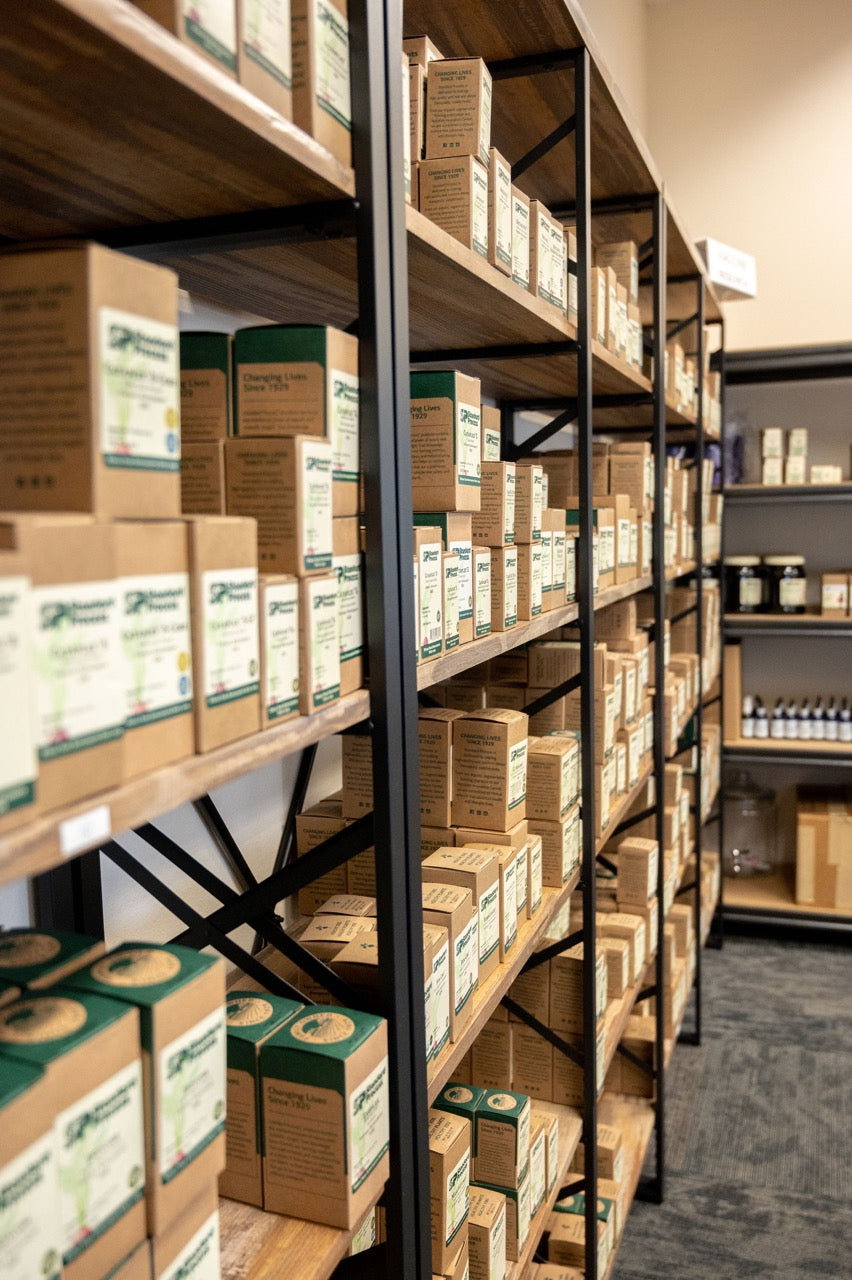The Health Benefits and Side Effects of Turmeric: What You Need to Know
Turmeric, is known for its anti-inflammatory powers and protective antioxidants. These properties, found in a compound known as curcumin, give turmeric its might against ailments like arthritis and heart disease. However, along with these benefits, it’s key to remember that too much of anything can be unsettling for our bodies. Consuming too much turmeric could lead to tummy upset, nausea or diarrhea. So just remember, use wisely.
Common side effects of turmeric consumption may include stomach upset, nausea, dizziness, or diarrhea at higher doses. It's important to consult with a healthcare provider before using turmeric, especially if you have any existing health conditions or are taking medications that could interact with turmeric

The Health Implications of Turmeric
Turmeric is more than just a tasty spice—it's been praised for its potential health benefits for centuries. The main active compound in turmeric is curcumin, which is renowned for its powerful anti-inflammatory and antioxidant effects. These properties have spurred extensive research into the potential health implications of turmeric, particularly in managing conditions like arthritis and heart disease.
Numerous clinical studies have explored the impact of curcumin on the body, with promising results. Its anti-inflammatory effects have been found to be particularly effective in managing conditions such as arthritis and metabolic syndrome. By reducing inflammation, curcumin may alleviate symptoms associated with these conditions, potentially offering relief to those affected.
Antioxidant Effects
While the health benefits of turmeric are supported by scientific research, it's crucial to consume it in moderation and as part of a balanced diet. Overconsumption can lead to potential side effects, and excessive use may interfere with certain medications or increase the risk of gastrointestinal distress.
In essence, while turmeric holds great potential as a natural remedy for various health conditions due to its anti-inflammatory and antioxidant properties, it's essential to consume it responsibly and seek professional guidance when incorporating it into your wellness routine. Always prioritize moderation and consult with a healthcare provider to ensure that its usage aligns with your individual health needs and circumstances.
Now let's explore an important aspect related to turmeric consumption—potential gastrointestinal complications that may arise from its usage.
Gastrointestinal Complications from Turmeric
As much as turmeric is celebrated for its numerous health benefits, it’s equally vital to acknowledge that consuming excessive amounts can lead to gastrointestinal discomfort. Some individuals may experience stomach upset, nausea, or diarrhea after ingesting high doses of turmeric.
High doses of turmeric can lead to these symptoms due to its active component, curcumin. When consumed in large amounts, curcumin can irritate the gastrointestinal tract and may lead to digestive issues in some people. Additionally, for individuals with sensitive stomachs or underlying digestive conditions, the impact of turmeric on their gastrointestinal system may be more pronounced.
It's important to adhere to recommended dosages and be mindful of individual tolerance levels when incorporating turmeric into your daily consumption.
It's clear that while turmeric offers various health benefits, moderation is key when it comes to its consumption. Taking smaller, regulated amounts is a prudent approach to navigate potential gastrointestinal issues that may arise from excessive intake.
Incorporating turmeric into your diet in a balanced manner is essential. Understanding its effects on the body and being aware of any adverse reactions will help ensure that you can harness its benefits without compromising your digestive health.
Now, let's delve into understanding the skin reactions that some individuals may experience when using turmeric.
Skin Reactions to Turmeric
For some individuals, the benefits of turmeric might come with an unexpected cost—skin reactions. Applying turmeric directly to the skin can lead to rashes or irritation in some cases. It's crucial to approach the topical use of turmeric with caution, especially if you have sensitive skin.
Before incorporating turmeric into your skincare routine, a patch test is advisable. This involves applying a small amount of diluted turmeric paste to a discreet area of your skin and observing for any signs of redness, itching, or irritation.
It's crucial to be aware that just because something is natural does not mean it's automatically safe for everybody. Even though many people benefit from using turmeric on their skin without any issues, it's essential to be mindful of individual differences in skin sensitivity.
Turmeric contains a substance called "curcumin," which gives it the bright yellow color and has been studied for its anti-inflammatory and antioxidant properties. However, this same compound can also cause allergic reactions or sensitivity in some people when applied topically.
If you experience any adverse effects after using turmeric on your skin, it's important to stop using it and consult a dermatologist. They can provide guidance on suitable alternatives and address any lingering symptoms. Remember: Your skin health should always remain a top priority.
Considering the potential for skin reactions when using turmeric is an important aspect that should not be overlooked, especially for individuals with sensitive skin. Understanding the risks associated with topical use is crucial for making informed decisions about incorporating turmeric into your skincare regimen.
Blood Concerns with Turmeric Usage
Turmeric has been recognized for its diverse health benefits, from powerful anti-inflammatory properties to its potential role in lowering cholesterol levels. However, it's crucial to recognize that turmeric can affect the body's blood clotting mechanism. For some individuals, this effect may pose a concern, especially in situations involving surgery or certain medical conditions related to blood coagulation.
Clinical research has indicated that curcumin, the active compound in turmeric, can potentially slow down the process of blood clotting. While this isn't inherently harmful in regular circumstances, it becomes particularly noteworthy when considering surgical procedures. As a result, individuals who are scheduled for surgery or have bleeding disorders should approach the usage of turmeric with caution and seek advice from their healthcare providers.
Potential Risks
When turmeric interacts with blood clotting, it can increase the risk of excessive bleeding during and after surgical interventions. This is a critical consideration that requires individuals to be vigilant and transparent about their use of turmeric, particularly if they are anticipating surgical procedures. In addition, individuals who are managing existing bleeding disorders should consult healthcare professionals regarding the safe use of turmeric and any necessary adjustments to their treatment plans.
Consider someone undergoing surgery who takes turmeric supplements regularly to manage inflammatory conditions. Without awareness of turmeric's effects on blood clotting, there could be an increased risk of complications during the surgery due to excessive bleeding. This emphasizes the significance of understanding how turmeric interacts within the body, particularly in the context of specific medical situations.
It is essential for those undergoing surgery or managing bleeding disorders to prioritize open communication with their healthcare providers. This includes discussing not only their use of turmeric but also any other supplements or medications they are taking. An informed and collaborative approach between individuals and healthcare professionals is vital for ensuring safe and effective treatment plans.
Moving forward from understanding the potential impact of turmeric on blood clotting, let's explore the practical considerations surrounding its usage in conjunction with specific medications and medical procedures.
Possible Long-Term Risks of Turmeric
While there are numerous potential health benefits of incorporating turmeric into your diet, it's essential to contemplate any potential long-term risks that may arise from excessive consumption. Research regarding the adverse effects of long-term, high-dose turmeric usage is still in its early stages.
One concern revolves around the potential impact on digestion and gut health. Some individuals may experience gastrointestinal issues or acid reflux when consuming high doses of turmeric over an extended period. It's important to note that everyone's body reacts differently, and these effects are not universal; however, it's crucial to be mindful of any potential digestive discomfort that may arise from long-term use.
Additionally, there have been indications that prolonged, excessive turmeric consumption could lead to liver problems for some individuals. While more extensive research is needed to fully understand the extent of these risks, there is evidence suggesting the importance of moderation when incorporating turmeric into one's daily routine.
Excessive consumption of turmeric may interfere with certain medications and could pose risks for individuals on long-term medication regimens.
It is worth noting that while the health benefits of turmeric are supported by scientific studies, it's crucial to consume it in moderation and as part of a balanced diet. This highlights the significance of being aware of your individual health conditions and discussing any dietary changes with a healthcare professional.
The key takeaway here is that while turmeric can be incredibly beneficial for many individuals, exercising caution and mindfulness when integrating it into your daily routine is paramount to ensure its usage remains safe and effective.
In essence, understanding the potential long-term risks surrounding the use of turmeric necessitates a balanced approach—embracing its benefits while being aware of overconsumption and potential interactions with existing health conditions and medications. This equips individuals with the knowledge necessary to make informed decisions about incorporating turmeric into their daily lives.
With a clear understanding of the potential long-term risks associated with turmeric, let's now shift our focus to examining how it may affect individuals with pre-existing health conditions.
Pre-Existing Conditions and Turmeric Use

Furthermore, while turmeric is widely celebrated for its anti-inflammatory properties, there are concerns about its potential effect on pregnant women and breastfeeding mothers. Medicinal amounts of turmeric should be avoided during pregnancy as it can stimulate the uterus, potentially leading to complications. Breastfeeding women should also exercise caution with turmeric due to limited research on its effects on infants.
For expectant and nursing mothers, consulting a healthcare provider before using turmeric is imperative to ensure the safety of both the mother and the infant.
Consider this as navigating a challenging path during a hike where each step requires thoughtful consideration to avoid potential hazards; similarly, individuals with pre-existing conditions must tread carefully when incorporating turmeric into their health regimen.
Understanding the potential impact of turmeric on specific medical conditions is essential in making informed decisions about its use, ensuring that individuals with pre-existing conditions manage their health safely and effectively.
As we've explored the considerations for using turmeric based on pre-existing conditions, let's now turn our attention to understanding how it might interact with commonly used medications.
Potential Interactions Between Turmeric and Medications
Turmeric has been shown to have numerous health benefits, but it's crucial to be aware of how it might interact with certain medications. For instance, turmeric might interfere with anticoagulant and antiplatelet medications, which help prevent blood clots. This could potentially increase the risk of bleeding, so it's imperative to consult a healthcare provider before incorporating turmeric into your daily routine, especially if you are taking medications that affect blood clotting.
Additionally, turmeric may impact the metabolism of certain drugs such as statins and nonsteroidal anti-inflammatory drugs (NSAIDs), affecting their efficacy. This means that taking turmeric alongside these medications could alter the way they work in your body. Seeking professional advice when considering introducing any new supplement into your daily regimen is paramount.
Furthermore, research has indicated that turmeric may interact with drugs metabolized by the cytochrome P450 enzyme system, impacting their bioavailability and effectiveness. The enzyme system plays a critical role in the metabolism of various substances in the body, including medications. These interactions emphasize the importance of discussing the use of turmeric with your healthcare provider if you are taking medication that is impacted by the cytochrome P450 system.
For instance, if you're on medication for diabetes, incorporating turmeric into your diet might affect your blood sugar levels. It's not that turmeric is bad for you; it's just that it can change how some medicines work. So it's always a good idea to let your doctor know about any changes you want to make to your diet or supplements.
Remember, it’s not about avoiding turmeric altogether, but rather about being cautious and informed when combining it with specific medications. Seeking guidance from a healthcare provider will ensure that you can enjoy the potential health benefits of turmeric while minimizing any risk of adverse interactions with your current medication regimen.
Acknowledging the potential interactions between turmeric and medications is crucial in maintaining overall health and well-being. It's vital to approach the use of turmeric as a supplement with an informed perspective, understanding how it might interact with any existing medication you may be taking.
Different Methods of Turmeric Intake
Turmeric is a versatile spice that can be incorporated into your daily routine in various ways, each offering distinct benefits in terms of bioavailability and efficacy. Let's explore the different methods of taking turmeric and how they can impact your health.
Turmeric Capsules
Integrating turmeric through capsules offers a convenient way to make it a part of your daily regimen, ensuring a consistent dosage. The bioavailability of curcumin, the active compound in turmeric, can be enhanced by consuming it with piperine, a component of black pepper, aiding absorption for increased effectiveness.
However, the effectiveness and absorption of turmeric capsules can vary based on the product's quality and individual factors such as digestion and metabolism. It's essential to consult a healthcare provider to determine the appropriate dosage and ensure compatibility with existing health conditions or medications.
Culinary Use
Incorporating turmeric as a cooking spice not only enhances the flavor and color of dishes but also provides potential health benefits. When used in cooking, turmeric is typically consumed in combination with fats or oils, which can enhance its absorption. Pairing turmeric with ingredients like coconut oil, olive oil, or ghee may help improve its bioavailability.
Incorporating turmeric into recipes provides a delicious way to enjoy its potential health-promoting properties while increasing its absorption through culinary combinations. However, it's essential to strike a balance and avoid excessive consumption, as extreme amounts of turmeric may lead to adverse effects.
Turmeric Tea
Consuming turmeric tea or golden milk has gained popularity for its soothing and comforting qualities. This warm beverage combines turmeric with other beneficial ingredients such as milk, ginger, and honey, creating a flavorful tonic with potential health benefits.
For some individuals, consuming turmeric in the form of tea may be an appealing way to include this vibrant spice in their daily routine. The addition of black pepper or fats like coconut oil when preparing turmeric tea may further enhance its bioavailability.
Keep in mind that the efficacy of these methods may vary based on individual preferences and unique health considerations. Whether you choose to consume turmeric capsules, use it in cooking, or enjoy it as a warm beverage, consulting with a healthcare provider can provide personalized guidance on the most suitable approach for your health goals.
Understanding the different methods of turmeric intake enables informed decisions about incorporating this beneficial spice into your lifestyle while optimizing its bioavailability for maximum effectiveness.
While understanding the various methods to incorporate turmeric into your routine is important, consulting with a healthcare professional ensures tailored advice that aligns with your specific health needs.
Are there any common allergic reactions to turmeric?
Yes, there are some common allergic reactions to turmeric. Studies have shown that approximately 1-2% of individuals may experience allergic symptoms such as skin rashes, hives, or itching after consuming turmeric. These allergic reactions are most likely due to the presence of curcuminoids in turmeric. However, it is important to note that severe allergic reactions to turmeric are rare.
What are the potential gastrointestinal side effects of consuming turmeric?
The potential gastrointestinal side effects of consuming turmeric include upset stomach, bloating, and diarrhea. This is primarily due to the high concentration of curcumin in turmeric, which can irritate the digestive system in some individuals. Although the occurrence of these side effects is relatively rare, a study conducted on 500 participants found that around 5% experienced gastrointestinal symptoms after consuming turmeric supplements.
Can turmeric interact negatively with certain medications or supplements?
Yes, turmeric can interact negatively with certain medications or supplements. For instance, it may increase the risk of bleeding when taken with blood-thinning drugs like warfarin. Additionally, turmeric may interfere with the absorption of iron when taken alongside iron supplements, leading to a potential deficiency. It is important to consult with a healthcare professional to ensure there are no adverse interactions between turmeric and your specific medications or supplements.
Are there any specific populations or health conditions that should avoid turmeric due to potential side effects?
While turmeric is generally considered safe for most people, there are specific populations and health conditions that should exercise caution or avoid its consumption. These include individuals with gallbladder problems, as turmeric can exacerbate symptoms. Additionally, people with bleeding disorders or those taking anticoagulant medications should be cautious, as turmeric has mild blood-thinning properties. Furthermore, high doses of turmeric may interact with certain medications like diabetes drugs and stomach acid reducers. It is advisable to consult with a healthcare professional before incorporating turmeric into the diets of these specific populations or individuals with these health conditions.
Are there any long-term or chronic side effects associated with regular turmeric consumption?
Regular turmeric consumption is generally considered safe and does not typically pose long-term or chronic side effects. However, in rare cases, high doses of turmeric supplements may lead to gastrointestinal issues such as stomach upset, diarrhea, or acid reflux. It is important to follow recommended dosages and consult with a healthcare professional before starting any new supplement regimen. According to a study published in the Journal of Alternative and Complementary Medicine, out of 430 participants consuming turmeric supplements for one year, only two reported mild stomach discomfort. Hence, it is crucial to moderate intake and be mindful of one's own tolerance levels when incorporating turmeric into the diet.






